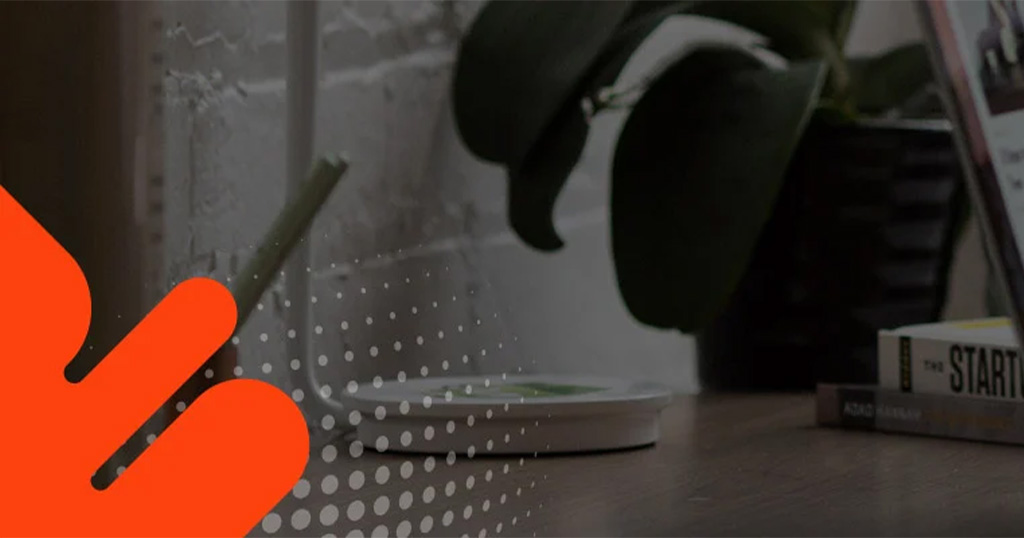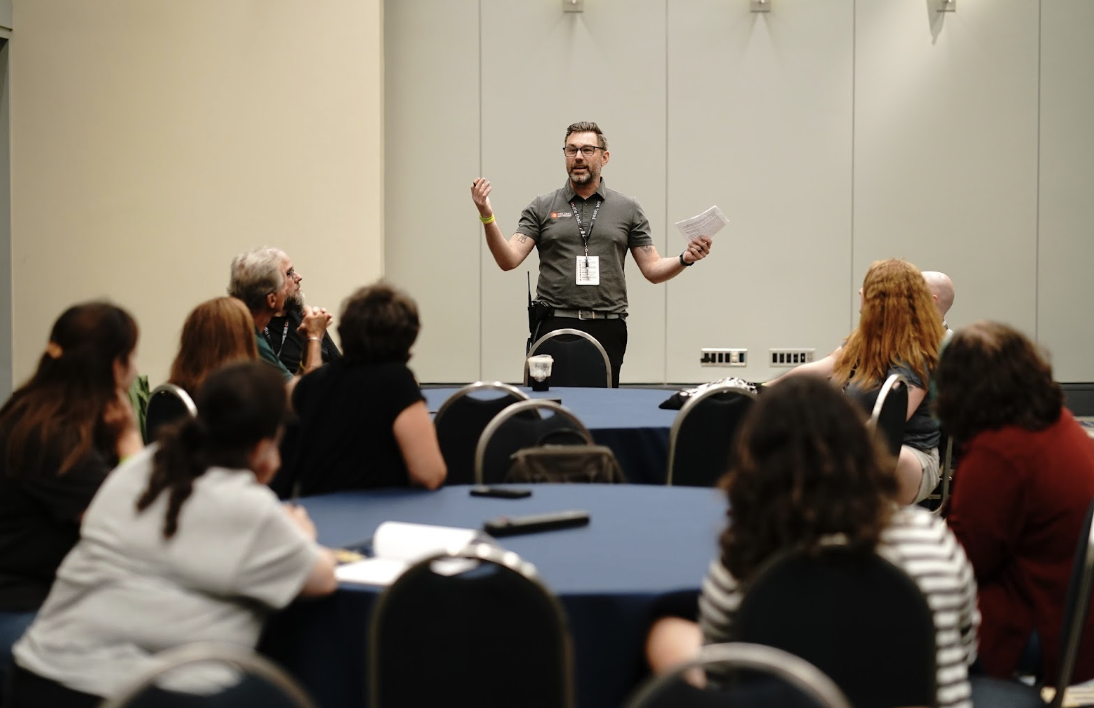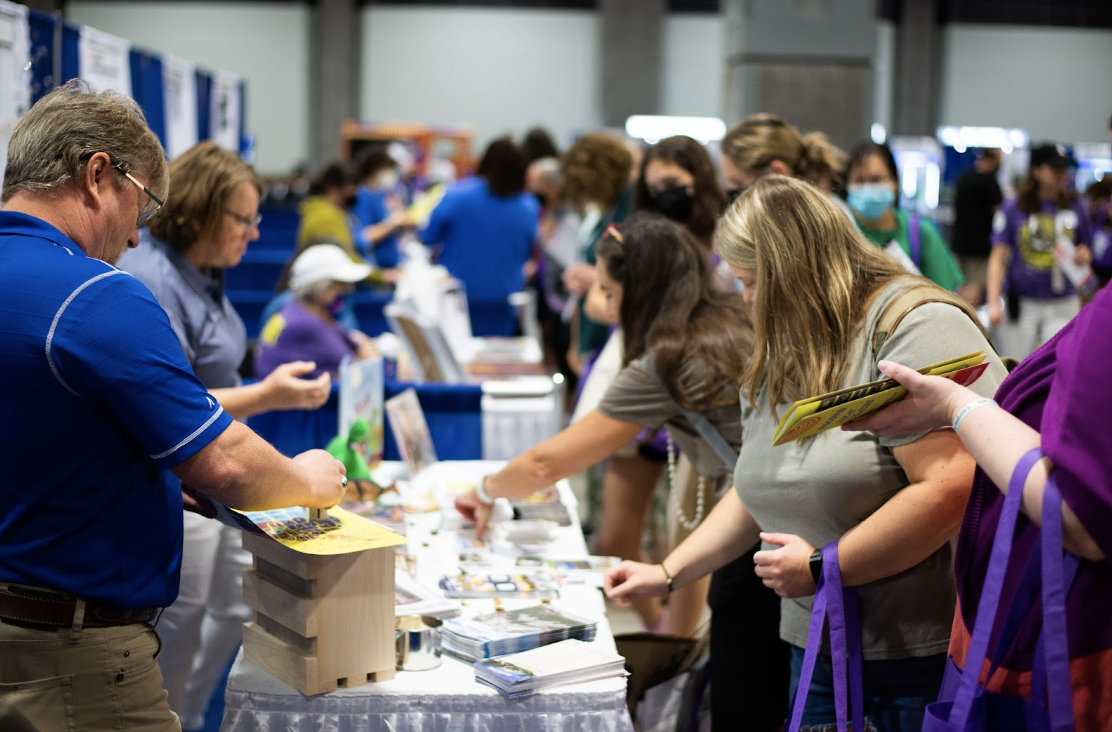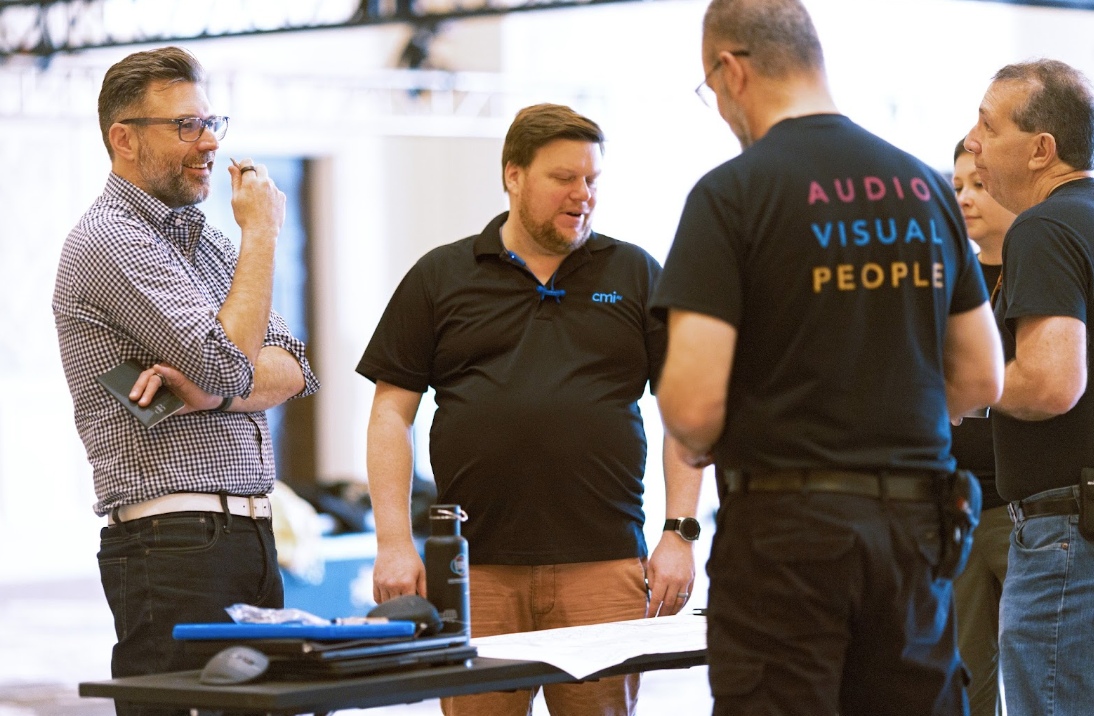Live event production requires great production, whether it is for your association’s annual conference of 350 people or your multi-million dollar software user conference. But what does the term production really mean?
When thinking about producers or production teams, Television Broadcast and royalty inevitably come to our minds. Why? The pageantry of it all. Part community building, part spectacle, all goal driven towards a purpose (even if the audience doesn t explicitly know what that purpose is)…live events allow large groups of people to bond together around common ideas and explore places they haven t experienced before, even if they never leave their home offices.
For instance, the opening of the 95th Academy Awards on Sunday was always going to be a “moment,” if the show producers had anything to say about it. Glenn Weiss and Ricky Kirshner, this year’s (2023) executive producers and showrunners, were certain that it was going to pull audiences in and keep them engaged for the duration, despite being shown at the same time as a highly binge-able TV show and waning viewership numbers for the past ten years.
They accomplished this, in several ways, most impressively through social media impressions. Since the Oscars aired this year in 2023, the event has generated a total of 4.2M total mentions across the globe. The awards also attracted 18.7M viewers, an increase of 12{04d9822e7d95da125d508d8e1efbcf2edc79acd8aec1f0bbdcbd6a6f684f9bb3} compared to 2022. Pretty great KPIs for an event, no matter what you re tracking against.
To give you an idea of the scale, it typically takes over 5,000 broadcast technicians, stagehands, and associate directors, among many other professionals, to produce the Oscars. Here are a few of the items they use to bring this live event production to life.
- 55 cameras are used across the Oscars, pre-show, digital show, and international feeds
- 12 mobile broadcast units and more than 20 technical support and office trailers are used in the production
- It requires 30 days to load, set up, rehearse, and strike the show
- Los Angeles DWP provides all electrical power. In the event of a power failure, a dual UPS backup system is used saving hundreds of hours of generator time and diesel fuel use
- 14 miles of fiber optic cable are used to support the broadcast infrastructure
- 1,500 lighting instruments and 18 miles of data and power cable are used to light the show
- There are over 120 musicians and 80 dancers performing in a typical show.
- More than 45 presenters participated in Saturday rehearsals. The orchestra rehearses and records at the world-famous Capitol Studios in Hollywood prior to moving into the Dolby Theatre
- In 2022, the stage was 120 feet wide and 75 feet deep
- There’s a 32-foot-wide elevator on-stage that descends 50 feet into the basement to assist in changing scenery
- The set is embedded with almost a mile of custom LED tape and is covered in 3,500 yards of pleated fabric
- The on-stage video wall surface totals 2,400 square feet
- There are more than 3,000 linear feet of red carpet created in custom “academy” red (Was it not champagne this year and caused a bit of a stir?
- It takes 600 man-hours to install and remove the red carpet (again, perhaps Champagne? ). The entire length of the carpet is cleaned on the morning of the show. We imagine with the beige carpet chosen for 2023, these man-hours increased dramatically.
What is Event Production?
Event production is the technological and creative execution of an event using sound, lighting, video, design, and more to control the atmosphere, mood, and emotion of attendees. An event producer will work with clients (typically meeting planners or event managers) to identify the concept of the event and subsequently plan the logistics and technical components, including audiovisuals, vendors, crew, equipment, budgets, and more. All of this to develop a visual communication of your brand or meeting concept.
If you re new to the event industry, you ll often hear words like event planning, event management, event coordination, and event production. While many of these terms are often used interchangeably, each requires different personnel with a variety of skill sets. On the other hand, if you re already a seasoned pro, here s a quick refresher before diving in-depth into event production throughout the rest of the guide.
The actual definition of the word production is rather boring and rather flexible, depending on to whom you re talking to. Technically speaking, producers are the folks who are in charge of the financial and administrative aspects of the live event. However, we feel the idea of the more mechanical definition of production:
the action of making or manufacturing from components or raw materials, or the process of being so manufactured.
Is apropos.
Producers take a raw idea, components such as speakers, collateral, and content that the events, marketing, sales, executive, and so on and so forth team has put together and creates stages and spectacle filled with light, magic, soaring oratory, and sparkling screens, reaching audiences in the room and around the world under high pressure, loud public and private opinions, and sometimes shrinking budget and always filled with stakeholders of competing goals.
This is also why producing a live event like the Oscars is not a job not everyone is cut out for. One might even wonder why Weiss, who was the director of the show when both Envelopegate and The Slap happened, would want to put himself through it again.
“There’s only a few shows on the bucket list,” Kirshner said. “I needed to go for the awards show EGOT.”
Event Planning vs. Event Management vs. Event Production
Event planning is about managing the activities prior to your event, which includes selecting venues, finalizing event dates, managing budgets, hiring a caterer, and more. On the other hand, event management is essentially the project management of an event, which may involve registrations, managing staff during the event, and resolving any onsite conflicts that arise. In short, event planners create the blueprint for an event, while an event manager takes ownership in seeing the plan through to execution on event day.
Event production elevates an event to the next level. Rather than focusing on planning and project management, event production focuses on the live, stage presentation of an event. Working with presenters, audio-visual crews, and technology vendors, event production teams produce and deliver amazing live experiences at an event.
The team who produced the live events surrounding Queen Elizabeth s funeral and the upcoming Royal Coronation for Prince Charles doesn t garner the same type of awards, but the quality of the production team an eye for detail, agility to think on their feet despite what the days might bring them, and a commitment to high standards is the same.
Queen Elizabeth II s funeral was an intricately staged farewell production that had it all: elaborate costumes, bagpipes, tolling bells, soldiers on horseback, cannons, and castles.
The streets along the procession routes along the route from Balmoral to London were jammed with crowds, but the far bigger audience was watching on TV around the world. Many analysts said the funeral could turn out to be the most watched single TV event in history, with a large portion of the 7.7 billion people around the globe catching at least some of it.
British officials are betting that the enormous effort to give the queen a proper send-off, the cost of which is still unknown, will return far more in tourism revenue. Japanese broadcaster NHK carried the funeral live, with simultaneous interpretation, and the funeral was the third top trending term on Japanese Twitter.
Live events are nerve-racking to pull off, said Jon Reynaga, a British film and TV producer. That s how you know you have a stand out company though. They re not afraid of the big stuff. A successful event production company is a partner that is able to turn its clients visions into a tangible production plan that can be shared with production vendors, crew, and venues. Essentially, they convert the client s vision into something that the greater production industry can understand and deliver on.
Many event production companies handle virtually all production aspects, so their clients can focus on the big-picture themes. Whether it is a document that your planning team has put together this year or similar to The Royal Family s plan leaked even earlier by the Guardian in 2017 showed the minute detail of 10 days of mourning.
Raynaga said The Queen s funeral was unique having the military involved, the government planning for years, and the royal family behind it all, is unique. They and the producers talked today for hours about orbs, scepters, symbolism and people love it, he said.
How To Choose A Great Event Production Company
With so many event production companies out there, how do you choose the one that will make your next live event make stand out?
The first thing to note is that the best event production companies will have experience producing hundreds of events for multiple industries, and will be able to tailor their focus to your goals and needs. They re not afraid or shy of potential clients asking key questions that will help them determine if their event production company is the right fit.
This includes questions related to what their core services are if the team is able to travel, whether or not your company can hire and coordinate your own AV labor, and whether or not you are up to speed on event production trends. We also find that long-term relationships with clients and event properties are a marker of a fantastic partner.
Great event production companies also share advice and recommendations on local venues and transportation, permitting, power requirements, and other potential logistical issues.
Finding a Trusted Crew
You ve heard and probably felt the hiring and HR challenges of not having enough people in all the roles you need; either because of a recruiting challenge or because of these uncertain times. The entire events industry (as with most industries) finds itself with fewer seasoned technicians returning to work post-COVID. This leaves experienced and desired technicians at a premium and booking earlier than ever.
We know going into this that crewing is often a difficult process because of the sheer number of freelancers who all need to be available for the days of the event. Sometimes, trusted crew members are already booked for other events or are only available for part of the event. When hiring new crew, there is always a risk of someone underperforming, which can make a big difference for the success of the show.
This is why it s so important for our producers to invest in relationships with trusted crew members who will go the extra mile. We pride ourselves at Decibel Events to keep good relationships with crew members, so they re more likely to pick your show over another company s.
Our event production team leads figure out their preferred crew and make sure to work with their clients early on in the process to set expectations with both you and the crew.
What Type of Events Can an Event Production Company Produce?
Event production companies can produce various types of live events, including corporate events, live sporting events, and broadcasts to turn your ideas into a reality.
Corporate Event Production
Corporate events can range from conferences and trade shows to team building and product launch events. The goal of these events ranges from raising brand awareness to potentially acquiring new customers. As an event production company, great event production companies will work with you early on to identify what the exact goal of each event is.
On top of that, in the corporate world, they know it s all about ROI. Corporate event production needs to help achieve those ROI goals too. The best event production agencies understand this and can help their clients set and achieve event ROI goals. As an event production agency working on a corporate event, we can bet that if we re able to help measure and maximize our client s ROI, your client will be coming back.
Televised Events and Broadcasts
Similar to sporting events, the experience of the listener or viewer is essential to the success of the show. Event production companies can flex their expertise in audiovisual technology to ensure the audience is enthralled. When it comes to televised events and broadcasts, there isn t much leeway for errors and missteps. Everything is timed down to the second. The best event production companies prepare well enough to predict and prevent miscues in order to deliver a smooth event or broadcast.
Any live event production has a lot of moving parts. Being able to identify and understand what needs to be done during the event production process is only half the battle. The other half? Learning the most effective way to complete the process.
Pre-Production
Pre-production is the first step in the event production process. This should typically start three months prior to the day of the event but can range down to less than a few days. It begins with listening to the client’s pitch. During the entirety of the event production process, the production team needs to be able to help the client thoroughly plan out the concept, coordinate graphics and videos, build the production schedule, and create a script for the event.
For event production companies, one of the biggest challenges is working with a client that doesn t have a clear vision of what they want their event to accomplish. When a client doesn t give enough information on goals or even logistics (like what the venue is or what the budget is), the event production team needs to be able to create this roadmap for them.
We know that as a client this can be frustrating as well. You have several stakeholders you want to please and are needing to show results quickly. Our approach is to make sure to ask our clients the right questions, including questions about their intended audience, which aspects of the event (execution, professional techs, gear types) are most important to them, what their budget is, and any past learnings they might have from past events.
It s also easier for both sides if there is a base to work off of. Did you produce similar shows in the past? Have you worked with a similar client in the past? If you have your old cue sheets, revisit them and see what you can learn. We also recommend listening into comm records from events. Hearing the stress level (or lack thereof) can garner a sense of calm with your team.
Since the production company s staff that is coordinating the event usually only makes up about 10{04d9822e7d95da125d508d8e1efbcf2edc79acd8aec1f0bbdcbd6a6f684f9bb3} of the onsite crew, booking your show crew should begin almost immediately, two to three months before the event if possible. The production team needs to reach out to show technicians early on to confirm availability and day rates, as well as book travel and lodging. These costs add up, so make sure you are prepared and can appropriately budget for this large expense.
Roughly two months prior to event day, the production team will work out the set design and branding and scope out gear costs associated with AV vendors (rental and staging companies), furniture, and equipment. Great production companies will work with you to keep costs efficient and realistic because this both increases the likelihood they will win the bid and still be able to deliver on the vision.
Coordinating with our clients on speaker presentations and collecting PowerPoint and scripts is a large part of the pre-production responsibilities. As much as possible, we don t want to arrive on show site with unknowns about the run of show. While there will always be last-second changes and additions to the show, the production companies that really succeed are the ones that ask the right questions during pre-production and really focus on removing the unknowns leading up to the show.
Another key part of the pre-production process is set and room design. On smaller shows, this will likely focus more on simple stages, projection screens, and pipe & drape. Larger shows will often have a custom fabricated or rented backdrop. This is where the coordination and communication of a successful production company really comes into play. Being able to coordinate between the audio, video, and lighting to ensure your event has the right AV gear to bring a set to life is key. We work with our clients and the venue to properly measure distances from screens to projectors and design the lighting and truss rigs so that they fit in the room. This is also where budget transparency is key. There is a vast range of scenic that can be tailored to each event. The more information we have about budgeting, the more successful we can be in getting to something that we can produce in your budget.
One month out from your event, your production team should begin building out a production schedule. This schedule should outline when AV vendor trucks should arrive at the docks, load in and show crew call times, load in schedules with meal breaks, client rehearsals and technical cue2cues, when the show starts, and details about the load and travel back.Some of this you ll know about as the event manager; typically though a great production team just takes care of and gives you high-level pieces of information to help keep your event running smoothly.
On-Site
The second step in the event production process begins a few days before the event. At this time, the rental and staging companies and production team should arrive on-site for set-up (load-in) and rehearsal. Oftentimes, clients won t fully understand what is involved in the set-up and the importance of setting aside time for tech run-throughs and client rehearsals. It is the job of a production company to carve out the required time here and give you AND their onsite crew the information everyone needs to be successful. This is where the production schedule and run of show is of utmost importance. It becomes the plan while onsite. Typically, the entire show flow, or rundown, isn t finalized until you get on-site.
Last minute changes really test the organization of the production team if they don t have a solid infrastructure to be flexible and agile. It is also one of the ways unproved or inexperienced teams trip up . If you do not have everything planned to perfection, you will be planning onsite, and not have bandwidth to focus on the new items that come up. Unforeseen technical problems, last minute changes from the client, and issues with the venue can all cause chaos. While being prepared for the unexpected is a must, we believe and live by the results from more than 16 years in the industry that help us produce successful event production quickly. We haven t seen it all (but we ve seen quite a bit) so ask us and we ll try to figure it out, within reason.
While on-site, behind the scenes while you re finalizing your elements of the event, your production lead will be coordinating with crew leads involved in producing the event. This typically looks like having a paper-tech meeting to go through the show flow item-by-item with the lead show crew, show caller, and producer. At this time, they will finalize technical details, fill out the run of show with AV cues, and discuss potential issues. Next, the team should have a cue-to-cue / run through from their respective positions in the venue (in person and virtual) on headset.
This is the time to step through all of the cues for a given show and really see how it all comes together. The run of show really gets dialed in during this period, often with multiple cues being changed or re-written entirely. Decibel Events uses several tools that help managing the changes to the run of show will really help the backstage team stay in sync.
From there, depending on what you ve requested of your production team lead, they ll report back any questions or concerns they have before you all move to a dress rehearsal – technical run through together. After the cue-to-cue, it is best practice for the production team to run through a rehearsal with the client present. This gives the client full transparency into what to expect and allows the client to request any changes that they want made to the rundown.
Show Day
On show day, the show crew should come in several hours before doors open. This gives everyone a chance to get their coffee and then run one more cue-to-cue before the show. This will often be a time where the client can get an extra rehearsal, if needed. The show crew should have the latest version of the show flow printed and distributed across backstage at this point.
Load-Out
One of the last steps in the onsite event production process is load-out. After a successful event, the production team breaks down the stage and all the AV, packages up their production office, and finally goes out to celebrate! The rental and staging crew generally take 1-3 days to pack up all the gear and load it onto the trucks. Depending on the size of the event or how busy the event production crew is, the team may be headed straight to another show! This can have effects on your overall event labor costs so be sure to ask questions during contract negotiations about call times.
Post Event: Assessing Your Event Success
The focus of any production team is creating a memorable experience for all event attendees, but the work doesn t stop there. For event production companies, it is necessary to show their clients the value of production services.
Return on Investment and Return on Objectives
The bottom line is important to all companies. How well was the event production company able to maximize budgets? Were they able to appropriately allocate resources to ensure event success? These are all questions you, as the client, may be wondering. However, it isn t always possible to tie production services directly to ROI. So one way we can is how we can provide results back to your team by looking at the return on objectives, or ROO. We collect and analyze this data providing vital feedback for our clients and advising them on how they can improve upon their events in the future.
Hiring the Right Production Agency for Your Next Event
What corporate events is your organization looking to pull off? Whatever it is, Decibel Events can help you to pull it off flawlessly. As a leading event production and management firm with experience in organizing everything from presidential events to massive trade shows to high-end corporate events, Decibel Event is right on top of all event management trends and knows how to best incorporate them into your next event. Let us help you to bring your event to life.







